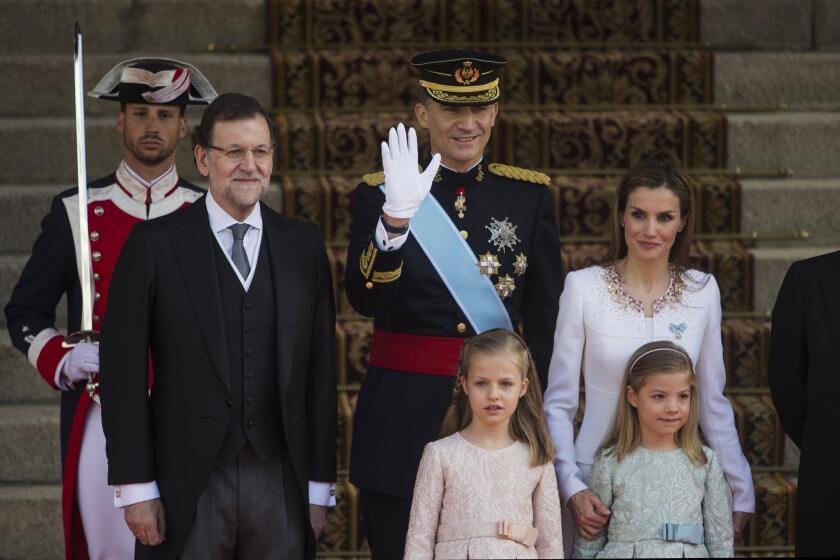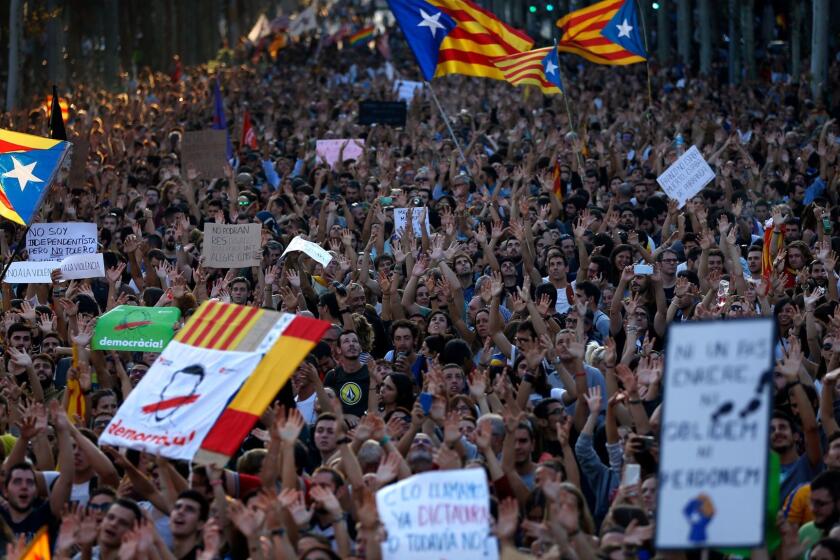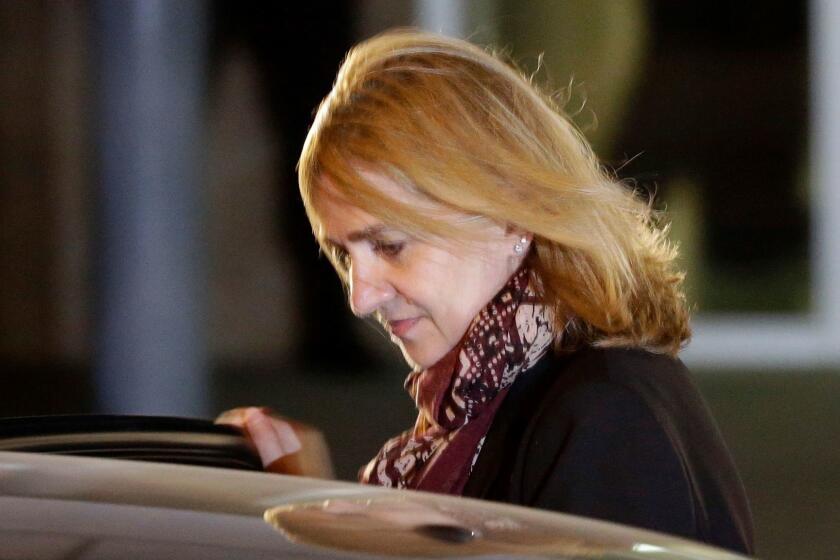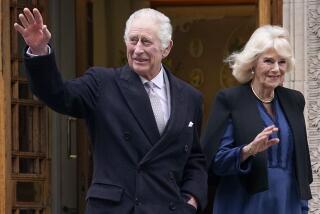Spain’s former king to go into self-imposed exile amid corruption allegations
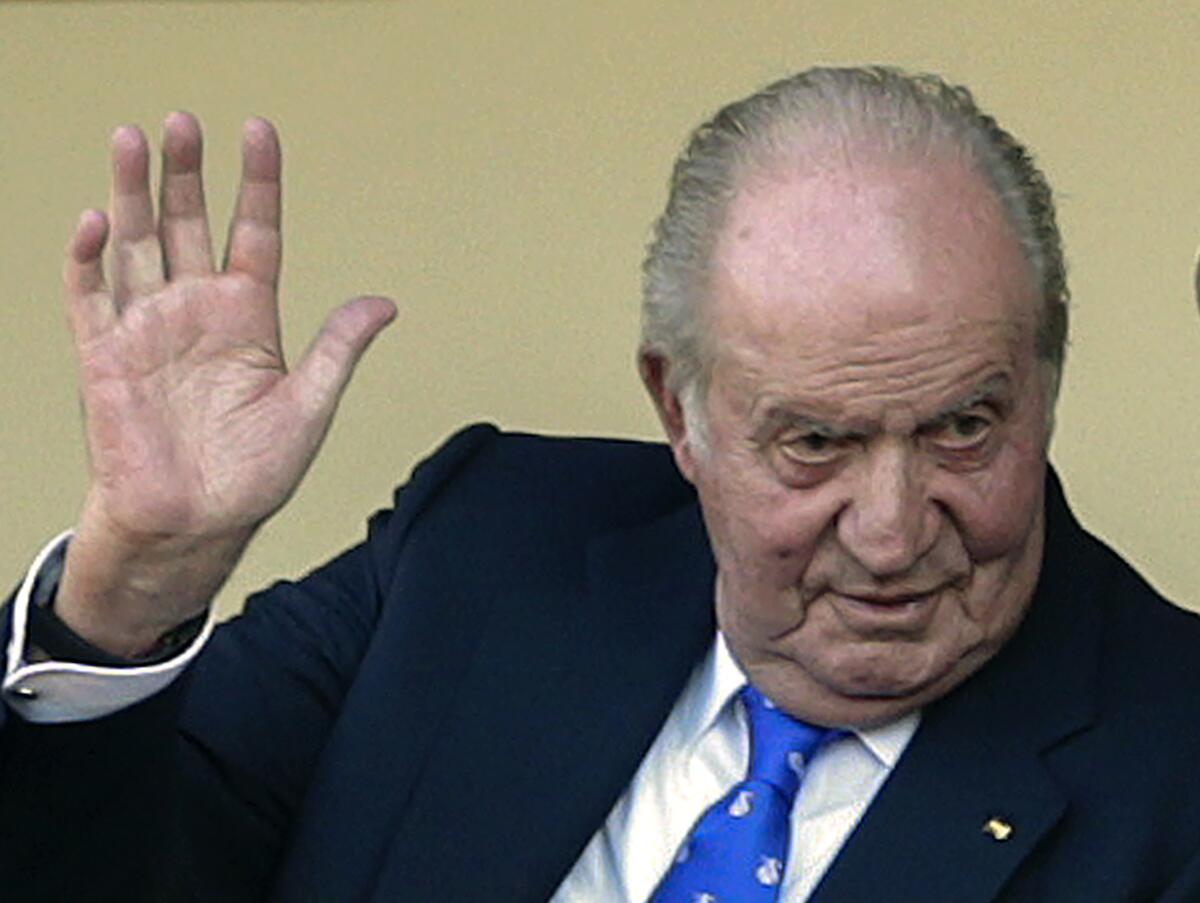
MADRID — Spain’s former monarch, Juan Carlos, is leaving Spain to live in another, unspecified country amid a financial scandal, according to a letter published on the royal family’s website Monday.
The letter from former King Juan Carlos to his son, the reigning King Felipe VI, said: “I am informing you of my considered decision to move, during this period, out of Spain.”
Juan Carlos, in the letter, said he made the decision against the backdrop of “public repercussions of certain episodes of my past private life.”
He said he wanted to ensure that he doesn’t make his son’s role difficult, adding that “my legacy, and my own dignity, demand that it should be so.” Juan Carlos’ current whereabouts were not known, with some reports saying he had already left Spain, stopping at least temporarily, if not permanently, in the Dominican Republic.
The decision means that Juan Carlos is vacating the 17th century Zarzuela palace in Madrid, his home for more than 50 years. He moved there after marrying the former queen, Sofia, in 1963.
Spain’s prime minister recently said he found the developments about Juan Carlos — including investigations in Spain and Switzerland — “disturbing.”
Felipe VI was sworn in as Spain’s new king at a no-frills ceremony on June 19 followed by a parade.
Since Spain’s Supreme Court opened its probe earlier this year, Spanish media outlets have published damaging testimony from a separate Swiss investigation into millions of dollars that were allegedly given to Juan Carlos by Saudi Arabia’s late King Abdullah.
Juan Carlos allegedly transferred a large amount to a former companion in what investigators are considering as a possible attempt to hide the money from authorities. The companion, Corinna Larsen, is a Danish German businesswoman long linked by Spanish media to the former king. Spanish prosecutors have asked her to provide testimony in the case in September in Madrid.
The 82-year-old former king is credited with helping Spain peacefully restore democracy after the death of fascist dictator Francisco Franco in 1975.
But dogged by scandals in the later years of his reign, Juan Carlos abdicated in 2014 in favor of his son Felipe, losing the immunity from prosecution that Spain’s Constitution grants to the head of state.
Spain’s King Felipe VI on Tuesday accused authorities in the northeast region of Catalonia of disloyalty to the state in what he called their unacceptable push for independence.
After media reports said Felipe was a beneficiary of an offshore account holding an alleged $76-million gift from Saudi Arabia to Juan Carlos, Felipe renounced any future personal inheritance from his father. Felipe also stripped his Juan Carlos of his annual stipend of $228,000.
The royal house has denied that Felipe had any knowledge of his father’s alleged financial irregularities.
The royal website said in a statement that Felipe respected his father’s decision to leave Spain.
Felipe acknowledged the historic importance of his father’s reign, the statement said, but also “reaffirmed the principles and values on which it stood, in the framework of our Constitution and the rest of our legal system.”
Breaking News
Get breaking news, investigations, analysis and more signature journalism from the Los Angeles Times in your inbox.
You may occasionally receive promotional content from the Los Angeles Times.
A statement from Spain’s general prosecutor’s office in June said it was investigating whether Juan Carlos received millions of dollars in kickbacks from Saudi Arabia during the construction of a high-speed railway there by a Spanish consortium. It called the probe one of “undeniable technical complexity.”
The Supreme Court investigation centers on developments after mid-2014. That covers the second phase of the 2011 contract for the bullet train between the Saudi cities of Medina and Mecca — the so-called “AVE of the desert,” a reference to the acronym for high-speed trains in Spain.
The date marks the moment when Juan Carlos, struggling amid several scandals, passed on the throne to his son after holding it for nearly four decades.
Though Juan Carlos’ finances have been questioned in Spanish media for years, there have so far been no legal implications for him. Spanish lawmakers have rejected at least two proposals since the first allegations emerged to open parliamentary investigations.
In a wide-ranging tax fraud case that captivated Spain, Princess Cristina was found not guilty Friday of being an accessory to fraud but her husband was convicted and sentenced to more than six years in prison.
“I think he didn’t have any other choice than to leave,” said Carmen Torras, a 66-year-old Barcelona resident. “I hope justice can follow its course.”
In Madrid, Nadia Rodriguez, 33, welcomed the former king’s decision.
“It’s better that he just goes,” said Rodriguez, a sports teacher. “The truth is that he hasn’t been giving a very good image of Spain.”
More to Read
Sign up for Essential California
The most important California stories and recommendations in your inbox every morning.
You may occasionally receive promotional content from the Los Angeles Times.
